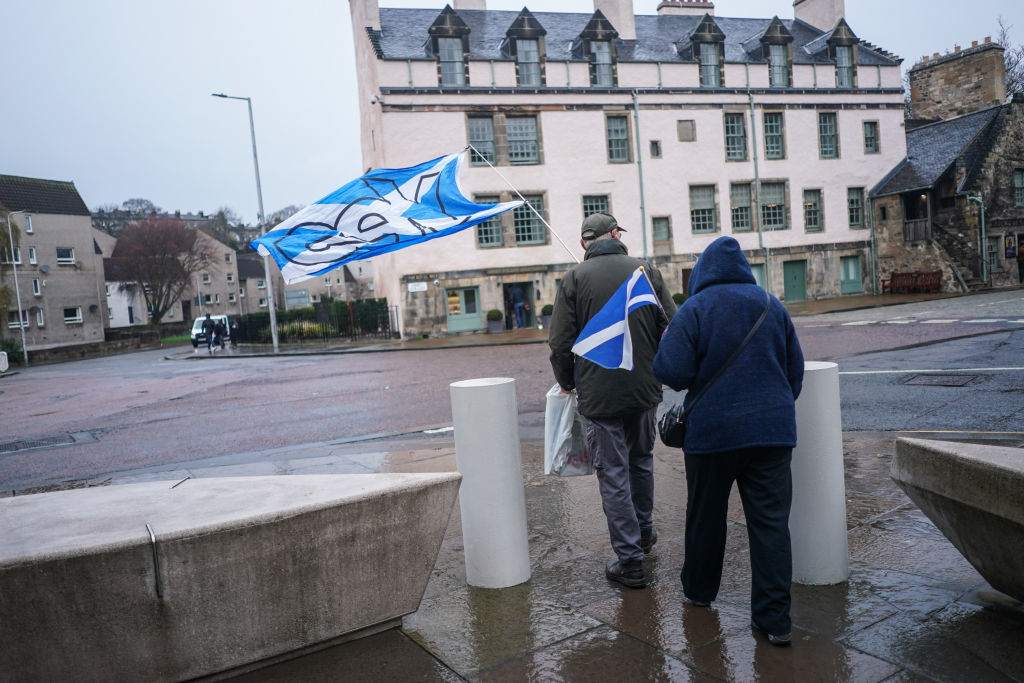New party leaders usually deliver their party a boost in the polls. One of the first signs that voters were not comfortable with Liz Truss as their Prime Minister was the absence of any rise in Conservative fortunes following her success last September in securing the keys to 10 Downing St. Those doubts were then simply strongly amplified when the financial markets reacted adversely to her ‘fiscal event’ in which she and her chancellor, Kwasi Kwarteng, proposed to fund tax cuts via borrowing.
Even if Yes voters’ faith in independence continues to be undiminished, their support for the SNP no longer appears unconditional.
Half a year later, her successor, Rishi Sunak, has so far only had modest success in reversing the damage done to his party’s reputation for good government – including among the many Leave supporters who backed the Conservatives in 2019 in order to ‘get Brexit done’. Their loyalty was far from unconditional.
Scotland’s new First Minister, Humza Yousaf, now finds himself in a similar predicament. Far from showing a boost in SNP fortunes, four polls of Westminster voting intention in Scotland conducted since the announcement of his success in the leadership ballot on average put support for the SNP three points down on where it was when Nicola Sturgeon announced her decision to resign in mid-February. At 39 per cent, support for the party is now at its lowest level since the 2019 election.
Following the police decision to mount a dawn raid on Sturgeon and Murrell’s home, as well as SNP party headquarters, Mr Yousaf – widely regarded as Ms Sturgeon’s preferred successor in the leadership race – has been presented with the severest possible test of his political acumen and authority. There is already some speculation that, much like Liz Truss, he might not last long in his new job.
We will have to await further polling before we know just how much damage last week’s dramatic pictures of the police raids have done to the SNP’s standing. But what we already do know is that the key foundation that has underpinned the SNP’s dominance of Scottish politics during the last decade – the loyalty of independence supporters – has already shown signs of being significantly eroded.
Ever since the 2014 independence referendum, the party has enjoyed the backing of most of those who want Scotland to become an independent country. According to the Scottish Social Attitudes survey, no less than 85 per cent of Yes supporters voted for the SNP in the 2015 UK general election, while, similarly, 84 per cent did so in the Scottish Parliament election of 2021. Attempts by the opposition parties north of the border to persuade voters to focus on the weaknesses in the party’s record in government rather than the debate about independence have largely come to naught.
However, those days now look to be over. SNP support has fallen during the party’s leadership contest even though backing for independence – and, indeed, for holding another referendum – has not. Support for independence in the four most recent polls is unchanged at 48 per cent. According to Savanta, as many as 45 per cent back the idea of holding another independence referendum at some point in future, little different from the company’s many previous readings on this issue. What, however, has changed is the willingness of Yes supporters to back the SNP. Now only 70 per cent of them are doing so, while as many as 18 per cent are backing a resurgent Labour party.
The loyalty of independence supporters has seemingly been undermined by doubts that many have about Mr Yousaf himself. Only 38 per cent of Yes supporters believe that Mr Yousaf has hitherto been a success as a Scottish Government minister. Equally, Redfield & Wilton report that only 38 per cent approve of his performance to date as First Minister. Meanwhile, less than half (45 per cent) of those who want independence regard him favourably.
Even if Yes voters’ faith in independence continues to be undiminished (and there is no guarantee that will prove to be the case), their support for the SNP no longer appears unconditional. As a result, the SNP look less well equipped to cope with stormy political weather – such as the smell of financial mismanagement – than at any point during the last decade. As Liz Truss can testify, ideology matters little to voters when presented with dramatic evidence of apparent arrogance and incompetence.






Comments